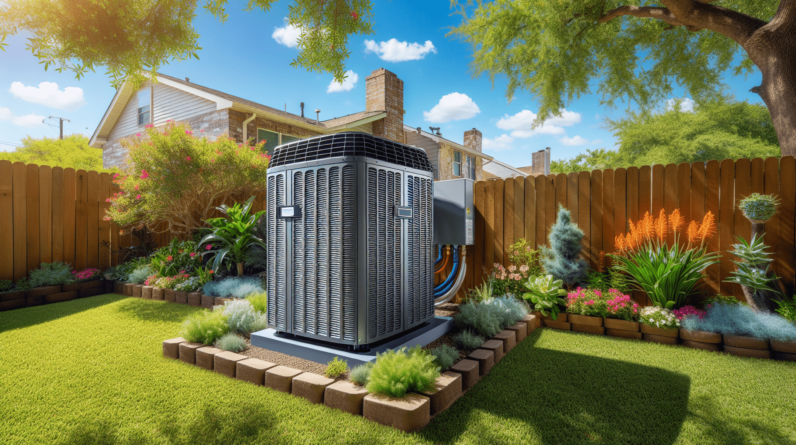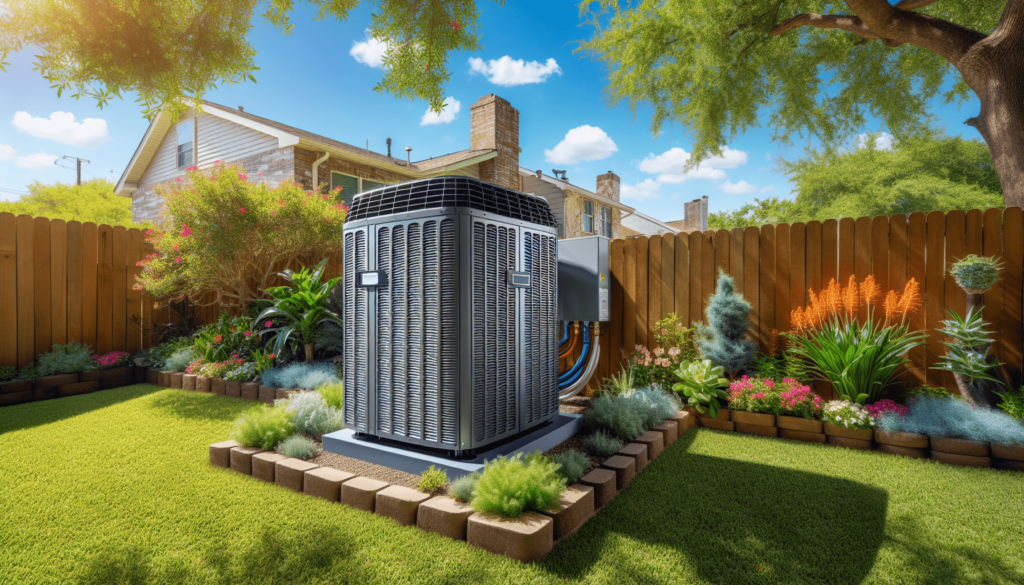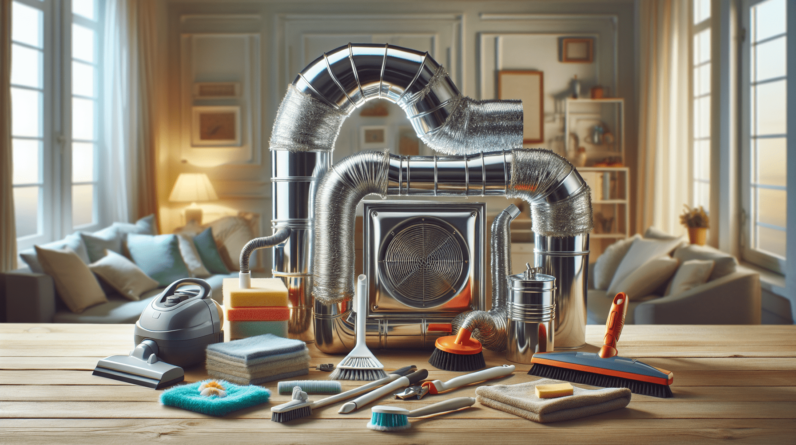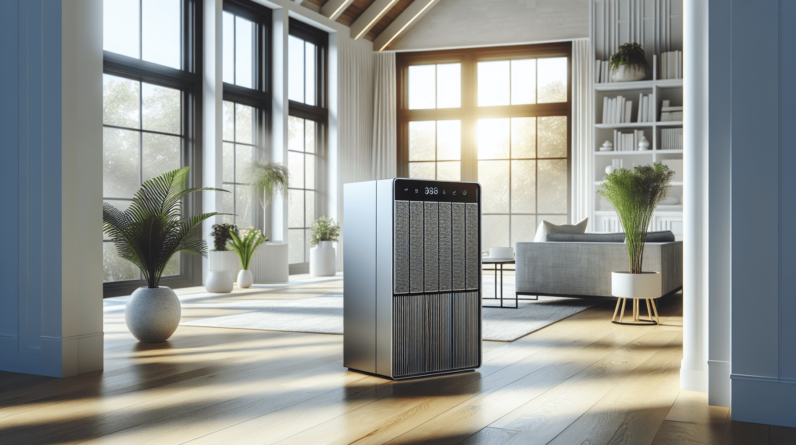
Have you ever wondered how to select an energy-efficient HVAC system that not only keeps your home comfortable but also saves on energy bills? It’s an important decision, especially in a place like Houston, Texas, where the weather can be extreme, and energy costs can add up quickly. Let’s walk through the key factors you need to consider when making this choice.

Understanding HVAC Systems
Before you choose an HVAC system, it’s essential to understand what it is. The term HVAC stands for Heating, Ventilation, and Air Conditioning. These systems are responsible for regulating the temperature and air quality in your home.
Types of HVAC Systems
There are several types of HVAC systems available, each with its unique features:
- Central Air Conditioners: These systems cool your entire house through a network of ducts.
- Ductless Mini-Split Systems: Perfect for homes without ductwork, these systems allow you to heat or cool individual rooms.
- Heat Pumps: This type extracts heat from the air or ground, providing both heating and cooling.
- Furnaces: Common in cooler climates, they heat air and distribute it throughout your home.
Choosing the right system depends on your home’s size, layout, and your specific heating or cooling needs.
The Importance of Energy Efficiency
Why focus on energy efficiency? For starters, it can significantly reduce your energy bills. Energy-efficient systems use less electricity to provide the same level of comfort, which can lead to savings over time. Additionally, being energy-efficient is beneficial for the environment, as it reduces your carbon footprint.
Reading the Energy Efficiency Label
When choosing an HVAC system, you’ll come across energy efficiency ratings such as SEER (Seasonal Energy Efficiency Ratio) for air conditioners and AFUE (Annual Fuel Utilization Efficiency) for furnaces.
| Rating | Definition |
|---|---|
| SEER | Measures cooling output during a typical cooling season divided by the total electric energy input during the same period. Higher values mean more energy efficiency. |
| AFUE | Represents the ratio of useful heat output to the energy consumed in a year. A higher AFUE means better efficiency. |
A higher rating generally indicates a more energy-efficient system.
Assessing Your Current System
If you already have an HVAC system, it’s essential to assess its performance before making a purchase.
Signs Your HVAC System Needs an Upgrade
Consider the following signs that it might be time to upgrade your HVAC system:
- Rising energy bills: If your energy costs keep increasing despite no changes in usage, your system may be losing efficiency.
- Frequent breakdowns: If you’re contacting repair services more than once a year, an upgrade may be a cost-effective solution.
- Uneven temperatures: If certain rooms in your house are hotter or cooler than others, your system might not be performing optimally.
Choosing the Right Size
One of the most critical aspects of selecting a new HVAC system is choosing the right size for your home. An improperly sized system can lead to inefficiencies.
Why Size Matters
- Too Small: An undersized unit will overwork itself trying to keep your home comfortable, leading to wear and tear.
- Too Large: An oversized unit may cool or heat your space too quickly, causing frequent on-off cycling, which can result in increased energy consumption and uncomfortable humidity levels.
How to Determine the Right Size
To find the correct size, perform a load calculation. This calculation considers factors such as:
- Square footage of the home
- Insulation quality
- Sunlight exposure
- Number of windows and doors
Hiring a professional to perform a Manual J calculation can ensure you get accurate results.
Selecting the Right Programmable Thermostat
A programmable thermostat can greatly enhance your energy savings.
Benefits of a Programmable Thermostat
- Schedule Control: You can set temperatures based on your routine, avoiding unnecessary heating and cooling when no one is home.
- Energy Savings: Programmable thermostats can save you around $180 per year, according to the U.S. Department of Energy.
- Remote Access: Some smart thermostats allow you to control temperatures remotely via phone apps.
When selecting one, look for features that suit your lifestyle.
Considering Energy Star Rated Systems
When shopping for an HVAC system, always look for the Energy Star label.
What is Energy Star?
Energy Star is a program established by the U.S. Environmental Protection Agency (EPA) that helps businesses and individuals save money and protect the environment through superior energy efficiency.
Why Choose Energy Star Rated Products?
- Higher Efficiency: Energy Star rated units generally exceed the minimum efficiency requirements, saving you more money in the long run.
- Incentives: You may be eligible for rebates or tax credits for purchasing Energy Star rated systems.
Investigating Different Brands and Models
Not all HVAC manufacturers are created equal. Research various brands and their reputation for reliability, customer service, and energy efficiency.
Popular Brands to Consider
Here are some reputable brands known for their energy-efficient HVAC systems:
| Brand | Notes |
|---|---|
| Trane | Tested for durability, offers high SEER/AFUE ratings. |
| Lennox | Known for quiet operation and efficient models. |
| Carrier | Offers a range of sizes and energy-efficient options. |
| Goodman | Typically known for affordability with good efficiency ratings. |
Check customer reviews and product rankings to guide your choice.
Budget Considerations
Understand your budget before making a decision. While energy-efficient systems may have higher upfront costs, they often pay off through savings on energy bills.
What to Include in Your Budget
- Initial Purchase Price: Understand the cost of the unit itself.
- Installation Costs: This may vary based on the complexity of the installation.
- Operating Costs: Calculate expected operating costs based on efficiency ratings and local energy prices.
Make sure you request quotes from multiple contractors to find the best deal.
Hiring a Qualified HVAC Contractor
Once you have all the information you need, it’s time to hire an HVAC contractor.
What to Look for in a Contractor
- Licensing and Certification: Ensure they hold the proper licenses and certifications for your state and local area.
- Experience: A contractor with several years in business tends to be more reliable.
- References and Reviews: Always ask for references and check online reviews to gauge customer satisfaction.
Getting multiple quotes will also help you make a more informed decision.
Understanding Warranties
Get familiar with the warranty that comes with your new HVAC system, as it can offer peace of mind.
Different Types of Warranties
- Product Warranty: Covers parts and possibly labor if something goes wrong with your unit.
- Extended Warranty: Offers additional coverage beyond the standard warranty period.
Read the warranty details carefully before making your purchase.
Maintenance for Longevity
After investing in an energy-efficient HVAC system, maintaining it is crucial for optimal performance and longevity.
Maintenance Tips
- Regular Filter Changes: Change filters every 1-3 months, depending on usage.
- Annual Inspections: Schedule yearly maintenance checks to ensure everything is running smoothly.
- Clean Coils: Dirty coils can decrease efficiency, so keep them clean.
Regular maintenance helps avoid costly repairs and keeps your system running efficiently.
Conclusion
Choosing an energy-efficient HVAC system in Houston, TX, can seem daunting, but it doesn’t have to be. By understanding your needs, choosing the right size and brand, and investing in a good contractor, you can find the perfect system for your home. Remember, the right HVAC system will not only keep you comfortable but will also save you money in the long run.
Take your time to do your homework and feel good about the purchase you make. Your home deserves an HVAC system that meets your needs and contributes to a more sustainable and energy-efficient future.








